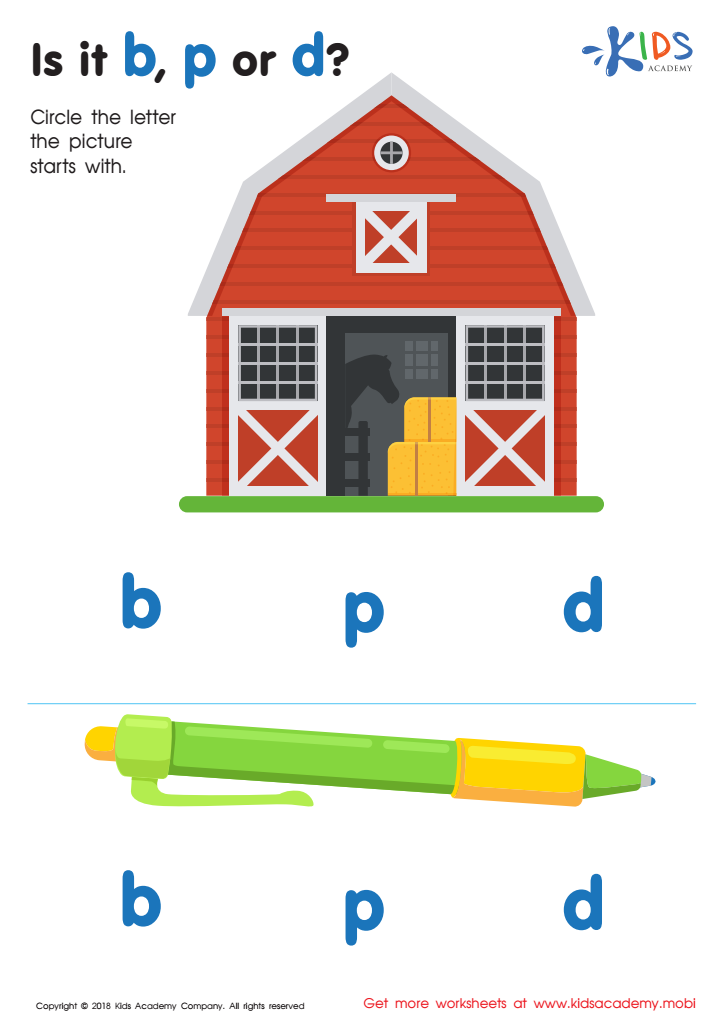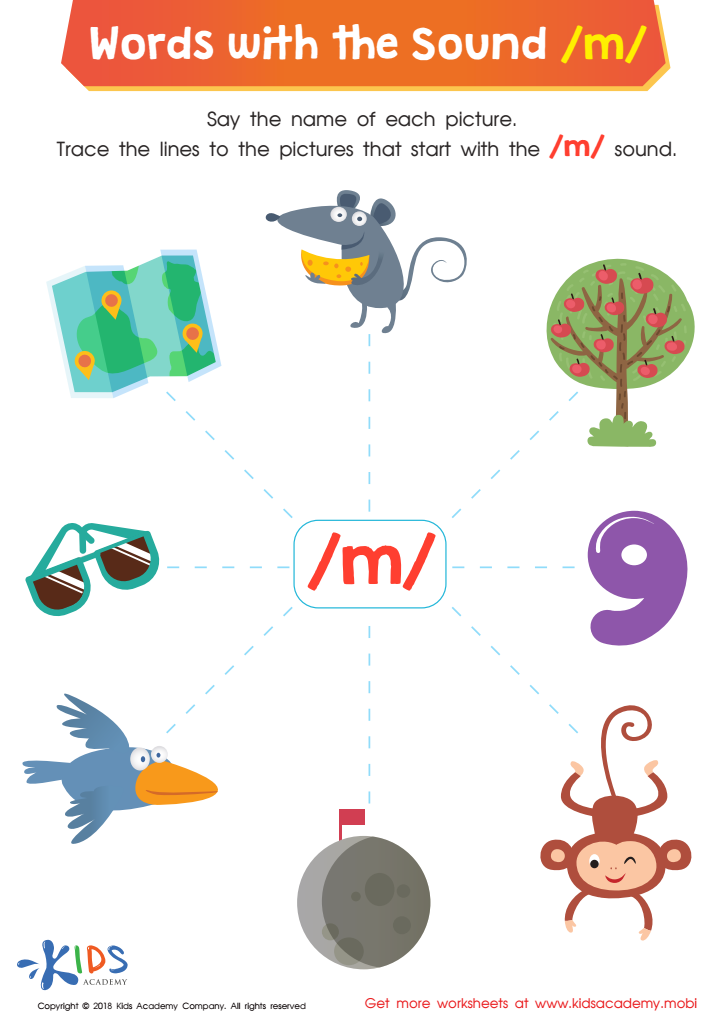Phonics practice Normal Beginning Sounds Worksheets for Ages 3-4
5 filtered results
-
From - To
Enhance your child's early reading skills with our Normal Beginning Sounds Worksheets, specially designed for ages 3-4. These engaging resources offer a fun and interactive way for young learners to practice phonics and identify initial sounds in words. Each worksheet helps develop essential literacy skills through colorful visuals and playful activities that capture your child's interest. Encourage phonemic awareness and boost their confidence in language mastery as they recognize letters and the sounds they make. Perfect for homeschool settings or additional practice at home, these phonics worksheets lay a strong foundation for future reading success. Start your phonics journey today!


Twin Onset Worksheet


Is it b, p or d? Worksheet


Words with sound p Reading Worksheet


Words with sound f Reading Worksheet


Words with Sound M Reading Worksheet
Phonics practice, specifically focusing on normal beginning sounds, is critical for preschool-aged children (ages 3-4) as it lays the foundation for their reading and language development. At this age, children are developing their auditory discrimination skills, which are essential for recognizing and producing sounds—a core component of phonics. Engaging in phonics activities helps children connect letters with their corresponding sounds, initiating their understanding of the alphabetic principle.
These activities foster language awareness, enhancing vocabulary and phonemic awareness. Through playful approaches—like singing songs, playing sound-matching games, and using picture books—children can better grasp the concept of sounds in words, making early literacy enjoyable. Furthermore, research shows that early phonics instruction can predict reading success in later years, equipping children with the tools needed for classroom achievement.
For parents and teachers, investing in phonics practice cultivates a child's confidence in literacy, promotes critical thinking skills, and prepares them for future academic challenges. Encouraging normal beginning sounds not only supports their readiness for formal schooling but also strengthens the bond between caregivers and children through shared learning experiences. Ultimately, prioritizing phonics lays a solid foundation for lifelong literacy skills.
 Assign to My Students
Assign to My Students














